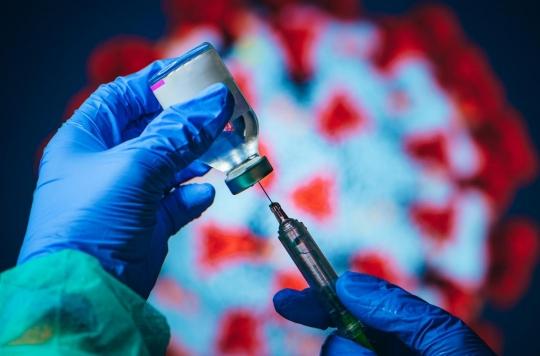England is the first country to authorize “from next week” the vaccine which will be available, announced a spokesman for the Minister of Health. Despite this global start, many questions remain, from the contagiousness of vaccinated people to the lack of perspective on possible side effects.

- The European Medicines Agency will deliver its opinion before December 29 on the marketing of the vaccine.
- Despite the vaccine, it is possible to still be contagious and able to transmit the virus.
- The question of side effects remains central and is raised as argument number 1 by anti-vaccines.
The United Kingdom gave the world a start in vaccinations against Covid-19 by authorizing the vaccine developed by the American Pfizer and the German BioNTech which has shown 90% effectiveness. “The vaccine will be available across the UK from next week”, announced a spokesperson for the Ministry of Health on Wednesday. The European Medicines Agency will deliver its opinion before December 29 on the marketing of the vaccine. In France, a general public vaccination campaign is planned “between April and June”, according to the Elysee.
Help is on its way.
The MHRA has formally authorized the Pfizer/BioNTech vaccine for Covid-19.
The NHS stands ready to start vaccinating early next week.
The UK is the first country in the world to have a clinically approved vaccine for supply.
— Matt Hancock (@MattHancock) December 2, 2020
Vaccinated but still contagious?
This announcement on the launch of vaccination does not hide the questions surrounding the different vaccines. One of the most important relates to contagiousness. Could a vaccinated person be contagious? During the presentation of its recommendations on the vaccine strategy, the High Authority for Health (HAS) conceded that it was not sure of the answer, specifying that it lacks “more data on this”. What is certain, for the moment, is that the injections make it possible to avoid serious forms. “The vaccine stops the disease in the lungs but not necessarily the entry of the virus into the body, that is the problem”, continues Professor Daniel Floret, vice-president of the technical commission for vaccinations, at the Parisian.
It would therefore be possible for vaccinated people to be infected with the virus, develop symptoms and be contagious. “To give you an image, if you have 100 virus particles and it blocks 80, there are 20 left, so you may have some symptomsexplains Bruno Pitard, research director at the CNRS and expert on the subject of the effectiveness of the vaccine. If you go to the cinema and you cough next to a person without a mask, it is possible to contaminate them.” This probability remains low, he adds, and the risks of transmission will be much lower.
Side effects, the origin of the fear of anti-vaccines
The question of side effects also arises as clinical trials have been carried out at full speed in order to make the vaccine available as quickly as possible. According to a BVA survey for Europe 1, published on November 23, the fear of these side effects constitutes the first argument of people who do not wish to be vaccinated. “We still know very little scientific data on the side effects of vaccines against Covid-19. For the moment, the laboratories have communicated little”, observes Bruno Pitard at West France. The data available on the first phases of clinical trials present some potential side effects: fever, fatigue, muscle or joint pain. Others could intervene later but most of the time, the side effects appear within 40 days of the injection and have therefore been controlled by the scientists.
There is still the case of rare side effects which may have gone unnoticed. “This is the problem of the statistics of the great number. Imagine a very rare problem with a frequency of 1 in 100,000 vaccines. The tests will not reveal it since they relate to 40,000 people for example for phases 3. However out of 1 billion vaccinated, such a rare, potentially serious case can still concern 10,000 people.”, advances Bruno Pitard.
The nasal spray, better than the vaccine?
In addition to future vaccines, alternatives are being developed. Among them, the nasal spray is gaining ground. The method, developed by researchers at the University of Pennsylvania in partnership with biotech Regeneron, could protect against the virus for six months with just a single dose. This spray is based on the principle of gene therapy by introducing genetic material into cells to produce powerful antibodies that would prevent infections with the new coronavirus. “The advantage of our approach is that you don’t need to have a perfectly functioning immune system for it to be effective.”, welcomed Professor James Wilson, in charge of the project. The researchers are currently conducting their animal trials and hope to begin those on humans by January.

.














